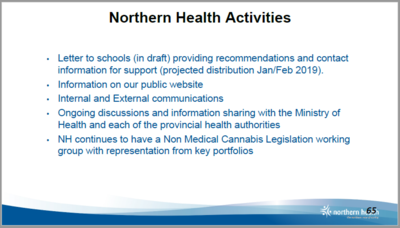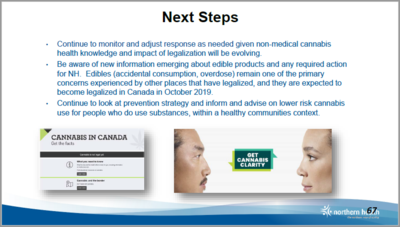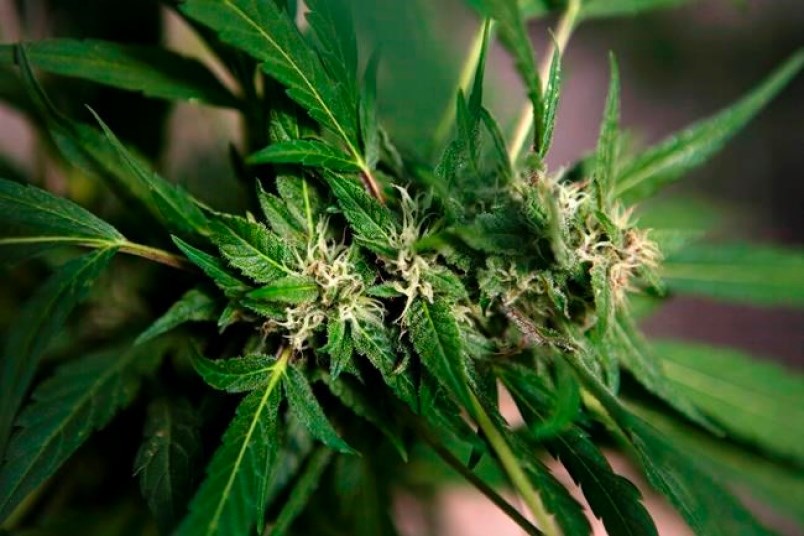It’s fair to say that on Oct. 17, 2018, many Canadians were high on the decision to legalize recreation cannabis, but it also prompted serious changes to local health authorities.
Northern Health, for example, was wanting to do everything in the power to ensure safety for the public in urban and rural communities across the region.
 Dr. Sandra Allison, Chief Medical Officer with Northern Health (via Northern Health)
Dr. Sandra Allison, Chief Medical Officer with Northern Health (via Northern Health)This included going into schools as its part of the Federal government’s mandate to keep cannabis out of the hands of youth, ongoing discussions with BC’s Ministry of Health and sharing information during the course of the first year, and keeping up-to-date with local municipalities.
On Monday (Feb. 11), Dr. Allison presented the process to Northern Health’s Board of Directors while at a meeting in Valemount, highlighting the goal has always been to strengthen the approach to improve its harm reduction policy.
“We always want to practice in a safe manner and provide quality care to those who need it most, which includes non-medical cannabis,” she said. “The low-risk use guideline brought down by our Federal partners is what we’re trying to promote more so than anything across our region because there are at-risk populations.”
She explains the main targets in the last four months have been pregnant women and youth as there are effects from cannabis on a developmental level.
“The horse is out of the barn and that’s really the purpose and intent behind legalization,” Dr. Allison added. “It’s not that cannabis is a harmless substance, but anything unregulated can be harmful. Providing a regulated environment for cannabis use in northern B.C. will allow for more access to care for people who struggle with substance abuse and allowing us to reply in kind.”
 Initiatives taken by Northern Health following cannabis legalization in Canada on Oct. 17, 2018 (via Northern Health)
Initiatives taken by Northern Health following cannabis legalization in Canada on Oct. 17, 2018 (via Northern Health)As for how long Northern Health could see struggles with the misuse of cannabis, that was tough to answer for Dr. Allison.
“I can’t speculate, but I believe that small governments grappling with how they respond could contribute. That’s mainly because of the limited resources; when you look at the north, I believe many local governments will continue to struggle given the implications. So we’re trying to support them as best as we can moving forward.”
Prince George has put forward two motions by the B.C. government to possibly implement provincial regulated stores in College Heights near Walmart and in the Pine Centre Mall, using a section of the old Sears section.
Dr. Allison said they’re trying to put all the pieces in place for when they need to deliver more information to all levels of government in ensuring safe environments during legalization.
 Northern Health's next steps into cannabis legalization (via Northern Health)
Northern Health's next steps into cannabis legalization (via Northern Health)


